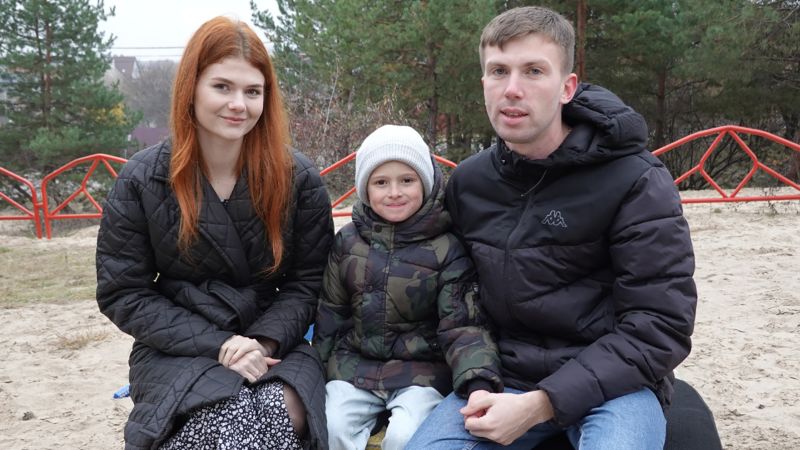Related Articles
JHIS is an important book. It explores how those who have suffered in Madeleine laundries, mother and baby homes, other residential institutions and in a closed and secret adoption system over the past 100 years have been treated by both jurisdictions. from the island of Ireland. It also offers many suggestions for remedying shortcomings and draws on similar experiences in Canada, Great Britain and Australia.
The idea for this collection was born out of an international conference at Boston College in 2018 titled Towards transitional justice: recognition, truth and institutional abuse in Ireland; followed by a special issue of Éire-Ireland: An Interdisciplinary Journal of Irish Studies in 2020 which included essays by conference participants. Thirteen of these essays, along with seven others also written by participants, are joined by four long-form journalism articles.
The editors are academics and members of the advocacy group Justice for Magdalenes Research (JFMR), which places the survivors’ motto, “nothing about us, without us”, at the center of their work. In their introduction, they ask what justice is and “how might democracy evolve if the experiences and expertise of survivors were allowed to lead? “.
We must first understand the meaning of “transitional justice”. In her contribution, Claire McGettrick draws on the UN definition and argues that it involves “four fundamental principles: the right to know the truth about historical abuses and the fate of the missing; the State’s obligation to investigate and prosecute human rights violations; the right to reparations; and, finally, the obligation of the State to prevent the repetition of human rights violations in the future.
Does Ireland comply with these principles? Since 2009 and the publication of Ryan Report on the Commission of Inquiry into Child Abusewe have had inquiries into the Blanchisseries de la Madeleine ( McAleese Reportt, 2013), the investigation of the symphysiotomy ( Harding–Clark Report2016) and in 2020 the Commission of Inquiry into Homes for Mothers and Babies published its final report.
The state has apologized for its legacy of institutional abuse but, as numerous essays here argue, it continues to wield power over survivors, adoptees and their loved ones, in how it uses their testimonies, administers reparations and controls the remains of those who died and how these abuses are to be remembered.
At the center of criticism of the Republic’s investigations is the way survivors’ testimonies are collected and processed. In his essay titled Antigone in Galway: Anne Enright on the dishonored dead, the author claims that the women’s testimony to Martin McAleese is “turned into a kind of chorus in the report” while the testimony of Dr. Coughlan who worked at the Galway Laundry takes up much more space. In addition, congregational records are anonymized and the originals are returned to them.
No criminal proceedings have been brought against anyone who has abused residents of the Madeleine laundries, mother-child homes or other institutions or against those who have carried out or facilitated illegal adoptions, with the exception of a prosecution minor against a midwife in 1965, who continued to run an adoption agency for years afterwards.
Readers may remember the number of survivors who reacted to the release of the Mother and Baby Homes inquiry report two years ago. What angered them most was the way the survivors’ testimonies were used and the way the commission members refused to appear before a committee of the Oireachtas to answer questions. In April 2021, the Garda Commissioner announced that as the Commission’s findings were anonymized it meant that “there is not enough detail in the report” to open an investigation. The Garda Commissioner, according to Maeve O’Rourke’s essay, “failed to mention that his police force is legally prohibited from accessing the entire archive of records collected by the Commission of Inquiry into homes for mothers and babies, in accordance with the legislation underlying the investigation”.
It seems that the state does not want to know how its previous investigations and reports have been received by victims. Máiréad Enright and Sinéad Ring write of the Child Abuse Inquiry Commission that produced the Ryan Report in 2009: “Pseudonyms have been granted to anyone accused of abuse, whether convicted or not. The evidence collected during the process was not allowed to be used in criminal prosecutions. This cloak of anonymity and effective immunity created partial history and left many victim-survivors feeling exposed and ignored by the state.
They examine the activities of the Residential Institutions Appeals Board, established in 2002, and an agency established in 2013 to support victim-survivors with their health, education and housing. Survivors were required to appear before a council, and the experience was described by many as a re-traumatization.
eng. They had to endure being cross-examined on the evidence given by the religious orders, although the orders did not have to testify orally. According to Enright and Ring: “Efforts to provide redress…have focused on limiting the exposure of state and religious orders to compensation claims.
The state continues to treat religious orders with deference, absolving them of legal liability, and despite a 2002 agreement that called for a 50-50 split, they only contributed 16% of the cost of repair.
The state’s response is to Refuse, delay and buy silence, according to Irish Examiner alumnus Conall Ó Fátharta, who has written extensively on the topics covered in this collection. He argues that by listing mother and baby homes, Madeleine laundries, illegal adoptions, etc. state agencies and authorities.
He adds: “They are a story; a scandal which, seen in its entirety, tells us about the fundamental character of the Irish state – from its very foundation.
In her lecture, Ruth Rubio Marín describes it as “a policy which was intended to encourage prolific Catholic marriages…a joint venture between the Catholic Church and the Republic of Ireland from its inception and which lasted to some extent until in the 1990s”. She goes on to describe it as “justified gender-based violence in the name of Catholic morality transformed into state ideology…which has failed…to uphold basic liberal democratic norms promising women full and equal citizenship. “.
Paul Michael Garrett examines how attitudes towards single mothers were influenced by figures such as Father Richard Stanislaus Devane, a prominent Jesuit, in the early years of the Free State, which few of us have heard of before. He was among those who gave evidence to the Commission on the Relief of the Sick and Destitute Poor in 1927 and was “engaged in a particular form of Catholic Irishness” – threatened by young people widening their “circle of their pleasures” including jazz, which he describes as a “dance threat”.
These are just a few of the interesting mixes of contributions; while some are from academics, others are testimonials from those who have suffered the wounds caused, for example, by the long-term effects on single mothers.
Among the latter is Catriona Palmer whose memoir An Affair With My Mother documented the sad reality that her mother kept her existence a secret and lives a “bifurcated and haunted life”. Terri Harrison describes herself as an ‘outcast mother’ whose son was abducted when he was six weeks old.
Redress should be read by anyone who cares about vulnerable people and those who can influence how they are treated today.
 Christ Yoder
Christ Yoder
/cloudfront-us-east-1.images.arcpublishing.com/gray/ODYKQRO5GRGJREMXBZNK5UFIX4.jpg)


